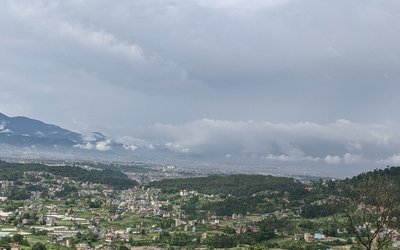Lots of hope and expectations prevailed in the aftermath of the 2022 general elections. The results had shown that the vanguards had slowed down, the traditional oath-keepers had followed from a short distance, the trailblazers had moved onto the national scene with a big bang, and the vicious ones had re-entered the arena. The political pundits’ predictions, experts’ opinions, and astrologers’ analysis of the movement of celestial bodies had forecasted ample hope for better governance for the nation.
Most experts, then, had pointed out that the message from the voters, expressed through ballots, was loud and clear, and called for an overhaul of the system. The system of governance, imposed from haunts and practiced for almost two decades having failed to deliver as promised, needed retooling. The little that had been achieved, thus far, by the larger citizenry under the existing system of governance, was not deemed meaningful enough to justify the collateral damage that had been caused to the Nation.
However, as can be confirmed by the turmoil and tribulations of the past few months, it seems like their math failed, their logic vanished, and the public expectations died again. The predictions of all-rounded analysts and the affirmations of unyielding activists from all sides turned out to be inexact. Suspicions and cynicism, thus,continue to grow all over again.
It hardly took six months and a series of tugs-of-war for the political chiefdoms, with the help of orchestrated theatrics and planned cacophony, to redefine alliances, reshuffle cabinet, and reassign roles and responsibilities amongst their kin and to continue to march ahead without any substantive and meaningful change in the governance model. In that midst, the placements in some key high-level strategic positions were negotiated and secured tactically by each major unit of players, as a compromise, followed by multiple quid pro quos at lower levels of power structure.
Instead of honoring their promises consistently with the people’s aspirations, the decision-makers opted to unilaterally reset the objectives, goals, directions, and targets of governance, and the rules of law-making. Not only was the act of resetting devoid of any mandate, but it was also deceitful, in that it completely and blatantly corrupted the country’s legality and constitutionality, derailed all ethical standards, violated the procedures and processes, and undermined all norms of decision-making in a system of parliament they devised. The spirit of separation of power, as understood in political science and as scripted in the constitution, was undermined in such a way that, at times, the difference between the three branches of government failed to exist. Thesacro sanctity of the process of the convergence and interactions of the separated branches, with their distinct interpretations, was completely disregarded.
Indeed, the causal relationship between the political economy and constitutional, legal, and institutional behaviors cannot be overstated. Even a bad choice, if deriving from a good process, has the potential of being accepted. But a decision, however good it may be, if emanating from an undue, incomplete, and non-transparent process, is sure to fail. Nonetheless, despite the egregious legal and constitutional flaws in the resetting, the victors’ laughter became more audible, and their preference for status quo more overt than before.
The result of such a choice, for the larger citizenry in the country, has been that sense and non-sense became indistinguishable, rights and wrongs became interchangeable, and most importantly, political parties’ commitments and affiliations became incomprehensible, if not devoid of any meaning. The lack of honest listening on the part of the mandarins of politics is not only a missed opportunity, but the teardrops of the people-sovereign, noticeable to all,also foretells possible distortions and encumbrances in the settlement of a long-term peace. Some, who had, thus far, remained dormant merely waiting for a propitious opportunity, have even announced a come-back by blowing the bugle of war. From all angles, the annihilation of the glitter and gloss of peoples’ power to represent sovereignty,is not implausible.
If, therefore,a balanced future is to be aspired to overcome the harrowing daily routine in the national polity, then serious changes are warranted. The habit of hereditarily supporting leaders without any cause, which has become an addiction, needs to change. The method of continuously prevailing with irrational and irrelevant arguments and monopolizing the media in an attempt to camouflage significant issues, which has become a religion, needs to stop. The routine of unleashing free flows of criticisms with malice, that too without proof, against the ‘other side, which has now become a movement, needs to pause. And just playing neutral to simply convey ones’ philosophical superiority, which has become a fashion but serves no purpose, needs to evolve.
In the current societal environment where triumphing has become a dogma and showing humility a heresy, instilling some sense of seriousness vis-à-vis the real people, appears to be the call of the day. Such a responsibility is, foremost, on those who have the lever of governance!
The author can be contacted at: Kshitiz@juno.com

Dr. Kishor Uprety
The author can be reached at kshitiz@juno.com
- Rethinking Multilateralism
- May 11, 2025
- The Time To Reminisce And Reiterate
- Mar 08, 2025
- Book Review: CHAKRABYUHAMA NEPAL KO JALASROT (WATER RESOURCES OF NEPAL IN A LABYRINTH)
- Jan 14, 2023
- An Overture Filled with Confusion
- Nov 27, 2022
- A Tumultuous Destiny
- Apr 18, 2022














